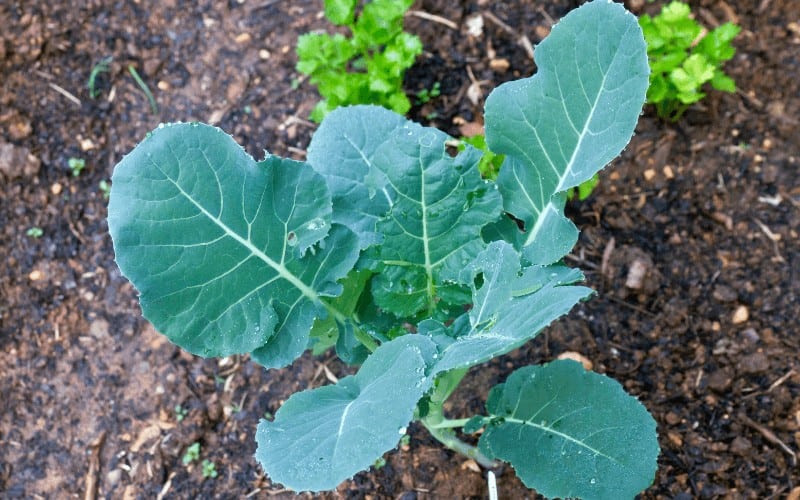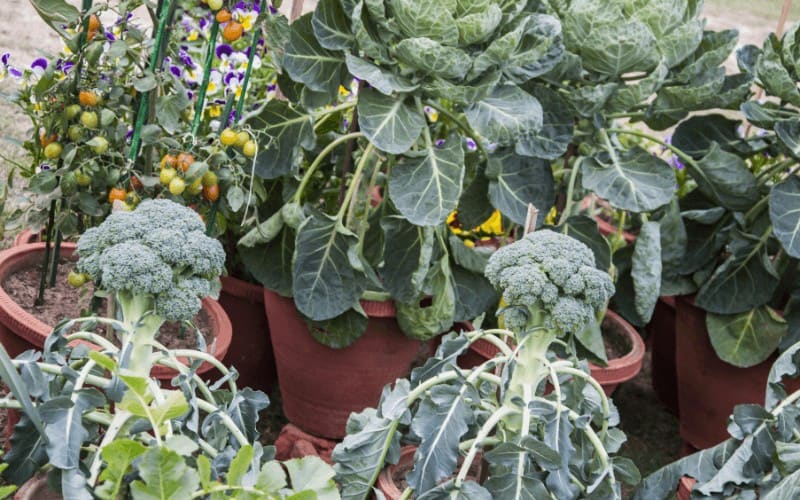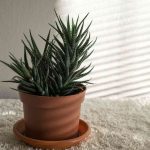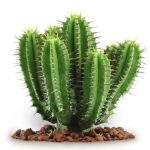A lot of us love eating broccoli - it is a nice and tasty vegetable you can find in many supermarkets. But, is broccoli man made? Is this vegetable made in a lab? The short answer is yes, broccoli is man-made, but there are some interesting facts you need to know.
Well, it's not surprising that a lot of vegetables we consume today are actually mad-made - but many of us never knew anyway.
To better explain broccoli and decipher whether it is man-made or not, it'd be ideal to look into the history of this plant. Broccoli is a plant that has existed for thousands of years, and who knows, maybe some early farmers did create this plant.
However, there's no need to guess here, let's get down to the facts about your favorite vegetable, broccoli and its origin.
Table of Contents
What is Broccoli Plant?

Broccoli (with the scientific name Brassica oleracea var. Italica) is a species in the cabbage family with a large flowering head just like cauliflower. It also has a stalk and grows tiny leaves, which are all consumed as vegetables.
This vegetable is believed to originate from Italy, and it is also believed to have existed for over 2,000 years.
In the plant family where broccoli is placed, there are other similar species (cultivars) that have common characteristics with the plant.
Consuming this plant is quite safe - though you should eat broccoli in moderation - as it has a lot of health benefits.
The main reason why many people cultivate broccoli is because of its edible parts. It is cultivated as an annual plant, but it is actually a biennial plant.
With pretty much already said, let's get straight into the main topic of today, which is to validate if Broccoli is man-made or it is in its natural form (still untouched).
Is Broccoli Man Made? (Origin of Broccoli)
If you're looking for a short answer, then you're definitely getting a "Yes." However, there are so many interesting facts about broccoli that you just need to know.
Early farmers, in the 1880s and even earlier, usually practice selective breeding; a process that lets them create modified varieties of certain plants, or even create a whole new plant that has never existed before.
The exact year when broccoli first appeared is still unclear; however, researchers say that the plant is aged past 2,000 years, which was when the early varieties appeared.
Broccoli was first grown in Italy before it was introduced in England and America in the 1700s, and afterward, it got to other parts of the world.
Furthermore, some sources have evidence that broccoli was first planted in the Roman Empire, while it originated from the Mediterranean region and East Asia.
Actually, the name of this plant was crafted from the Italian word “Broccolo.” Broccolo means “the flowering crest of a cabbage;" broccoli is the plural form of broccolo.
Plants created through selective breeding are different from those made from a lab experiment. Broccoli is not a product of lab experiments, instead, it was created through selective breeding by early farmers.
If this is the first time you're getting to hear about "selective breeding," here's a brief highlight of what it actually means.
What Is Selective Breeding?

Artificial selection (selective breeding) is an extensive process where plants of similar characteristics are cultivated together to form a unique species or a new plant.
This process takes many years, and sometimes decades before the final result is achieved.
One thing you should also know is this, early farmers practice artificial selection, or selective breeding because they want to achieve a new plant that proves more resistance to pests, disease, harsh climatic conditions, drought, and the reasons keep going.
Furthermore, this process is carried out through different means; it could be by propagation from cuttings, layering, grafting, and other means.
This day farmers hardly practice selective breeding because it actually takes a long time to achieve the results.
Most of the modified plants we grow today took almost a thousand years to develop into the current form they appear today.
Well, it's not just broccoli but most of the fruits, nuts, and vegetables we consume today are all man-made. Well, since they were created so many centuries ago, we see them as purely natural - to be in their original nature - without human intervention.
But the truth is, if not for human intervention, we wouldn't have had most of these delicious vegetables we chew almost every day.
Read Also:
Conclusion
Now, is broccoli man made? Apparently, you already know the answer to be yes. It is man-made but not genetically created in a lab. The plant was created through selective breeding and its actual origin is not so clear.
More so, the fact that broccoli is man-made doesn't mean that it is not safe to consume, or anything of such. To achieve broccoli, Wild Cabbage ( Brassica oleracea) was selectively breeder for many years.
Other varieties of plants that were gotten by selectively breeding Wild Cabbage include cabbage, brussels sprouts, cauliflower, kale, collard, and kohlrabi.




